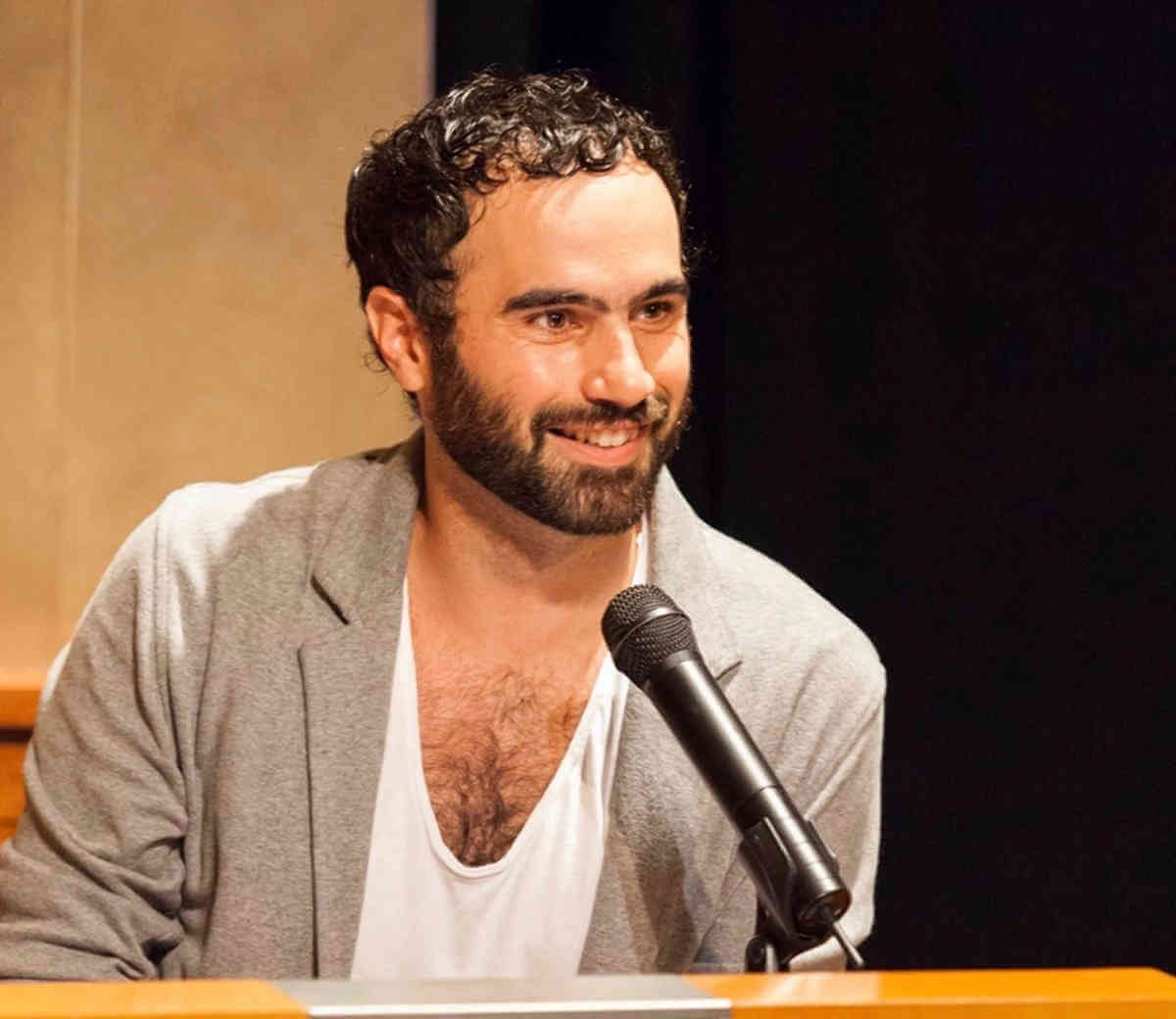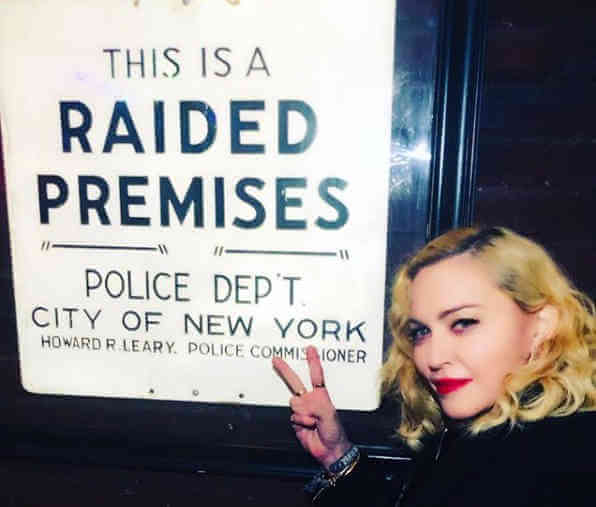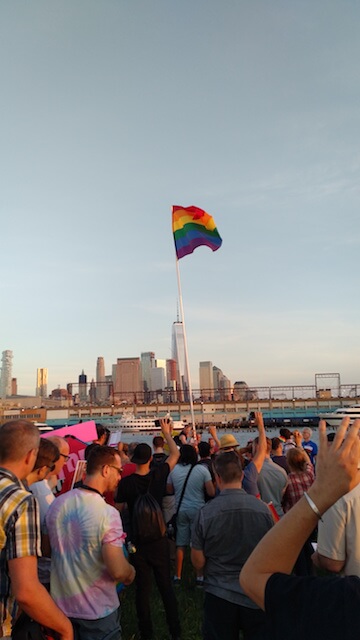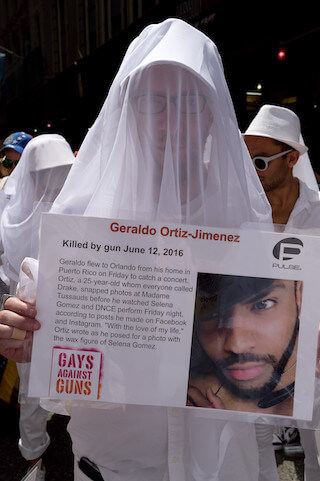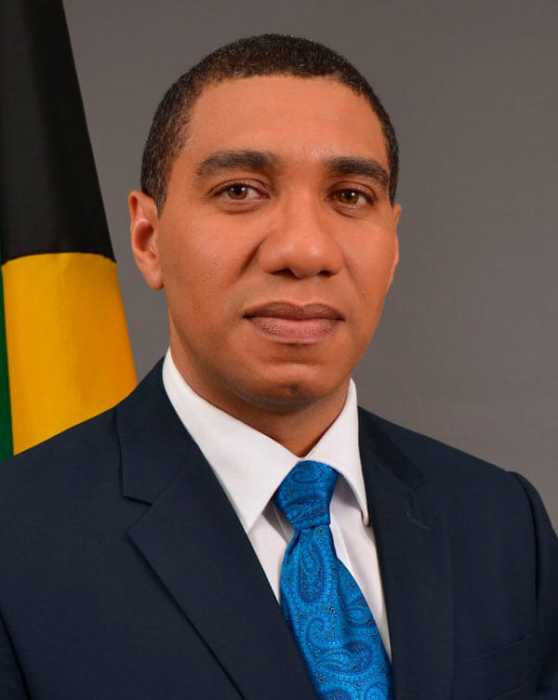Wes Enos, executive director of The Generations Project, has a deep-rooted affinity for history. The enterprising young activist founded the history-minded group in 2015 with the aim of bridging what he saw as the widening chasm between young and old queer generations. And the prime building blocks for those bridges take the form of shared histories through highly personal stories — whether happy or harrowing — about the LGBTQ experience.
“History has a history of being forgotten,” the 32-year old Enos said. “When history is not shared, it is lost. Our community has not had the resources or social acceptance to have our heritage recorded properly. Now we have all the resources available.”
Enos concedes that when he started the not-for-profit endeavor, he knew nothing about the watershed Stonewall uprising. He’d heard of it, but didn’t grasp its historical impact.
By creating an inclusive, safe space for dialogue, vital queer history is passed down to younger generations and the LGBTQ community is fortified. Naturally, Enos, who grew up in rural Oregon, has a captivating story of his own.
“History has always been a part of my life, for better or for worse,” he recalled. “My dad taught every 10th grader in my school world history. Even the terrible students who hated school would come up to me and say they loved his history class. He found a way to make history come alive.”
But as Enos entered 10th grade, he suddenly lost his dad to pancreatic cancer. He would sit in his dad’s former classroom and various substitute teachers would ask him why his last name sounded familiar. He was forced to explain, his stomach in knots, that they were teaching his dad’s curriculum.
“I grew to hate history,” he said. “I didn’t want anything to do with it.”
Closeted and terrified of being gay, he mustered the courage to come out after graduation. To his relief, the declaration was, for the most part, warmly received by his friends, mother, and five siblings. When he went off to college, he started as a psychology major but to his somewhat chagrined surprise ended up majoring in history. It was in his blood, after all.
“When I moved to San Francisco in 2005, I was ignorant of so many things,” he recalled. “I didn’t even know the Castro district existed. I just knew that gay people were somewhere in that city. I didn’t really know if I knew gay people existed anywhere but San Francisco.”
Soon Enos found a job as a waiter at a restaurant in the Castro, where he worked for five years. Fittingly, the restaurant was called Home.
“It’s where I made my chosen family, my first gay family,” he said.
One morning while working a brunch shift he told a fellow waiter, “No matter what I do with my life, I don’t ever want to be one of those old gay guys who sit here having breakfast alone every day.”
The coworker was not having it.
“These men used to go out dancing just like you do,” he snapped. “They used to have brunch with large groups of friends just like you do.”
The fellow waiter explained that due to the AIDS pandemic in the 1980s and ‘90s, many of their friends had died.
“At that moment I realized how little queer history I knew and how little respect I had for our elders,” Enos recalled. “I was enjoying being part of the community but taking it for granted, not fully appreciating anything.”
When he relocated to New York a few years later, he met other young gay men similarly clueless about queer history. Once at a party in Hell’s Kitchen, he overheard a group of 21-year-old gay boys declare that anyone over 40 should be banned from gay bars. Enos was appalled and vowed to figure out a way to educate the younger generation.
“I think that’s how it is with most younger people,” he observed. “There’s so much rich history in the LGBTQ community. As a young gay person new to the scene, where do you start?”
After initiating a number of conversations with older people about gay life it struck him — intergenerational storytelling. The Generations Project was born.
“Our community has been missing a platform where older adults are valued and their stories acknowledged,” said Enos. “The best way to build our community is to share our history and make sure our stories are passed to the next generation.”
The platform created by The Generations Project consists of workshops and shows, where stories are presented in front of a live audience and recorded. The group has collected over 100 stories and staged more than 15 storytelling shows, with more on the calendar.
The storytelling workshops are a structured curriculum where LGBTQ folks meet once a week for four weeks to develop their stories. On the final day, they present a five-minute story to the group, and their friends and family.
“Now we have an archive of experienced storytellers,” Enos said. “When we create themed shows we can pull storytellers from past workshops, mix them with others in our network, and build an eager community to support them. The workshops help coax it out of people with no experience. Some of the participants never thought they would share their story in front of an audience.”
Enos estimated these shows draw up to 350 people, depending on the venue. As participants enter, they collectively build an LGBTQ timeline of newspaper clippings and movie quotes before the storytelling show begins. They also grab a timeline card from the year they were born.
“It’s a networking icebreaker,” Enos explained. “If you come alone, it can be intimidating. You have something in your hand, something to talk about to the stranger next to you.”
During the first hour of the event, attendees mingle (the open bar adds further lubrication) as they create the timeline. Then they sit down for a polished show where each storyteller speaks for about 10 minutes.
“Younger people are gaining a reputation of having shorter attention spans,” he said. “We have 10-minute stories for a reason.”
Past shows have centered on themes such as HIV stigma, the history of Gay Pride, personal and historical “first times,” and how fashion has contributed to LGBTQ visibility.
In recent shows, The Generations Project has expanded its scope, adding younger storytellers to the mix.
“Regardless of our age, we all have a desire to learn from someone younger or older than ourselves,” Enos said. “The best way to learn is to connect with people of different ages.”
For its next event, The Generations Project teams up with Summer of Sass on May 2 to present “The Feel Good Cabaret: Comedy for Charity,” an evening of standup and storytelling hosted by comedian Kristen Beck and featuring Wanjiko Eke, Anddy Egan-Thorpe, and Samantha Ruddy, among others, at the Stonewall Inn.
While the main thrust is for everyday folks to share their stories, notable figures in the LGBTQ community have also gotten into the act. At a recent “Make History” fundraiser at New York’s LGBT Center, New York City Council Speaker Corey Johnson related a powerful coming-out story about being a closeted star on his high school football team and feeling so lost he considered suicide.
In past storytelling events, Reginald Brown talked about his efforts to provide housing for low-income people with HIV, Cleve Jones recounted how he learned that his friend Harvey Milk had been assassinated, and the late Dick Leitsch chatted about his role in staging the famous “Sip-In” at Julius’ bar in 1966.
One of the most memorable for Enos was Melissa Sklarz, an out transgender woman long active in progressive politics who failed to win her election bid last year for a New York State Assembly seat in Queens. She was hoping to be the first ever transgender member of the State Legislature.
“She was a macho jock who had not been comfortable in her skin,” said Enos. “When she discovered the Gilded Grape bar, she found a community of gender nonconforming people that she could relate to. Her journey of finding a community and sort of becoming absorbed into the good and the negative sides of it is an experience that I have felt myself. Eventually, she hit rock bottom emotionally and said something that resonated deep within me: ‘Once you’ve hit rock bottom, there’s only one direction you can go and that’s up.’ That has always stuck with me.”
Naturally, The Generations Project cannot fulfill its mission alone. The group has partnered with SAGE, HBO Out, the Alice Austen House on Staten Island, and the Fashion Institute of Technology, among others. The group is gearing up to collaborate with GMHC, the Jewish Heritage Museum, and the Black Lesbian Conference, and is looking to work with colleges to connect student groups with alumni.
As part of the mammoth Stonewall 50 celebration this June, The Generations Project is joining forces with the New-York Historical Society to create the Stonewall 50 Time Capsule, to be stored at the NYHS for 50 years. But it’s not your typical time capsule.
Enos sees the cache as a physical manifestation of the LGBTQ movement, generated through content from the group’s workshops and storytelling events and other collaborations with the Stonewall 50 Consortium.
According to Enos, the time capsule will be created by trendy metalworker Carlos Lopez (aka The Project Assassin). For now, it is designed to be the size of a small trunk, roughly three cubic feet, and made of 14-gauge steel. It will be jam-packed with envelopes created by organizations and participants from their events, comprised of short stories, pictures, memorabilia, transcripts, and more.
Why wait so long to open the Stonewall 50 Time Capsule?
“I like 50 years because I’m an environmentalist and am concerned about the future,” Enos said. “Some people say they might not be around in 20 or 30 years. Well, let’s write about that in the time capsule. Let’s record our positive intentions for a world we want in 50 years. What do we need to do now to make that happen?”
“So much of our LGBTQ+ history has already been lost,” Enos continued. ”With most of our history now being preserved digitally, I think the future organizers of the 100th Anniversary of Stonewall will find our physical manifestation of the LGBTQ+ movement invaluable in understanding our history.”
A grand party celebrating the closing of the time capsule is planned at the NYHS for June 2020, the 50th anniversary of the first Gay Pride March in New York.
With an abundance of planned programs and events, does Enos fear they might be generating too much content?
“If necessary, we can expand the time capsule,” said Enos. “There’s no such thing as too much content.”
For more information, check out the group’s website at thegenerationsproject.org or contact Wes Enos directly at wes@thegenerationsproject.info.


